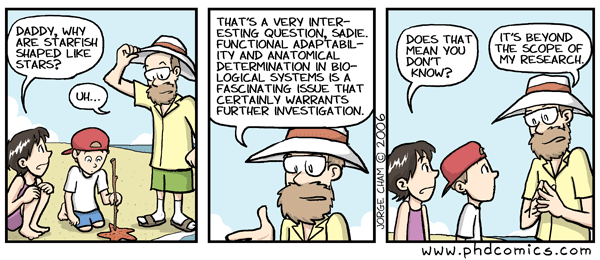A very interesting lecture delivered at CMU by Gregory Chaitin, who has taken up research in problems that were ailing Math during the early 20th century - Problems in formalism and foundation of math.
Was the invention of the computer a quirk of fate? Was it due to the failure of a mathematical proposition by Hilbert that mathematics can be formalized completely through an artificial language?
Is there randomness in math as is seen in quantum physics, something pure mathematicians despise? Are there problems that will remain unsolved due to the very reason that there is no structure or pattern that the problems' solution fits into..that the answer to the problem is an accidental truth?
How can the following statement be resolved:
Prove statement 1. And statemet 1 is "This statement is unprovable."
You simply cannot prove statement 1.
If statement 1 is provable, then we have proved something which is unprovable and therefore flawed or absurd. If statement 1 is unprovable, we cannot prove statement 1 and that is what statement 1 says - That it cannot be proved!
A mathemetician cannot stand the absurdity that comes along in proving statement 1. So statement 1 is a kind of an unresolved problem in maths. The only thing that can be done to statements such as statement 1 is to understand why they exist. And why they exist, as argued by Gregory chaitin, is because some statements are accidental truths, the truth doesn't have a formal structure or pattern that it fits into and hence cannot be proved. And why is the truth accidental?
Oh, that's because God plays dice.
The lecture also dwells on - How randomness can be measured in a sequence of numbers and what it has got to do with problem size complexity. Note, problem size complexity is analogous to computational complexity. The former doesn't worry about the efficiency of the algorithm and its computational time and is founded in information theory. The latter is a measure of fast and efficient algorithms.
Was the invention of the computer a quirk of fate? Was it due to the failure of a mathematical proposition by Hilbert that mathematics can be formalized completely through an artificial language?
Is there randomness in math as is seen in quantum physics, something pure mathematicians despise? Are there problems that will remain unsolved due to the very reason that there is no structure or pattern that the problems' solution fits into..that the answer to the problem is an accidental truth?
How can the following statement be resolved:
Prove statement 1. And statemet 1 is "This statement is unprovable."
You simply cannot prove statement 1.
If statement 1 is provable, then we have proved something which is unprovable and therefore flawed or absurd. If statement 1 is unprovable, we cannot prove statement 1 and that is what statement 1 says - That it cannot be proved!
A mathemetician cannot stand the absurdity that comes along in proving statement 1. So statement 1 is a kind of an unresolved problem in maths. The only thing that can be done to statements such as statement 1 is to understand why they exist. And why they exist, as argued by Gregory chaitin, is because some statements are accidental truths, the truth doesn't have a formal structure or pattern that it fits into and hence cannot be proved. And why is the truth accidental?
Oh, that's because God plays dice.
The lecture also dwells on - How randomness can be measured in a sequence of numbers and what it has got to do with problem size complexity. Note, problem size complexity is analogous to computational complexity. The former doesn't worry about the efficiency of the algorithm and its computational time and is founded in information theory. The latter is a measure of fast and efficient algorithms.


No comments:
Post a Comment